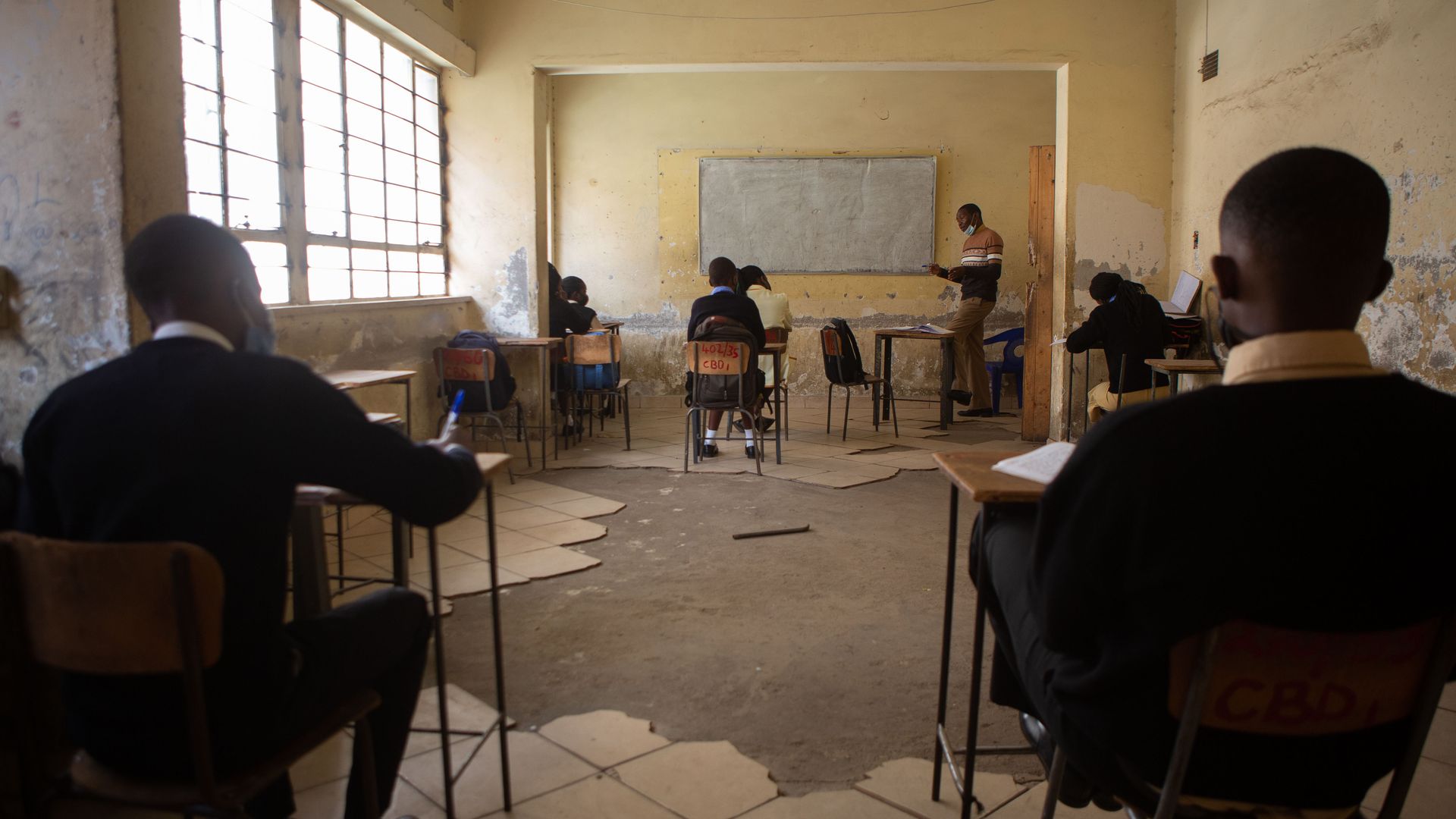Mar 30, 2021 - World
Global education gap to grow due to uneven recovery and vaccine access
Add Axios as your preferred source to
see more of our stories on Google.

Class in Harare, Zimbabwe, where schools recently reopened following a lockdown. Photo: Tafadzwa Ufumeli/Getty Images
